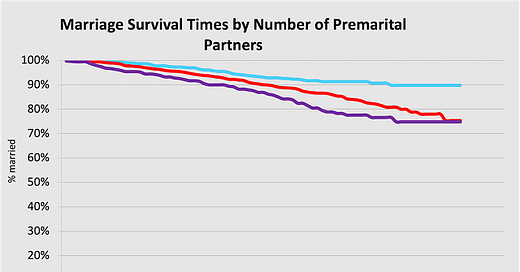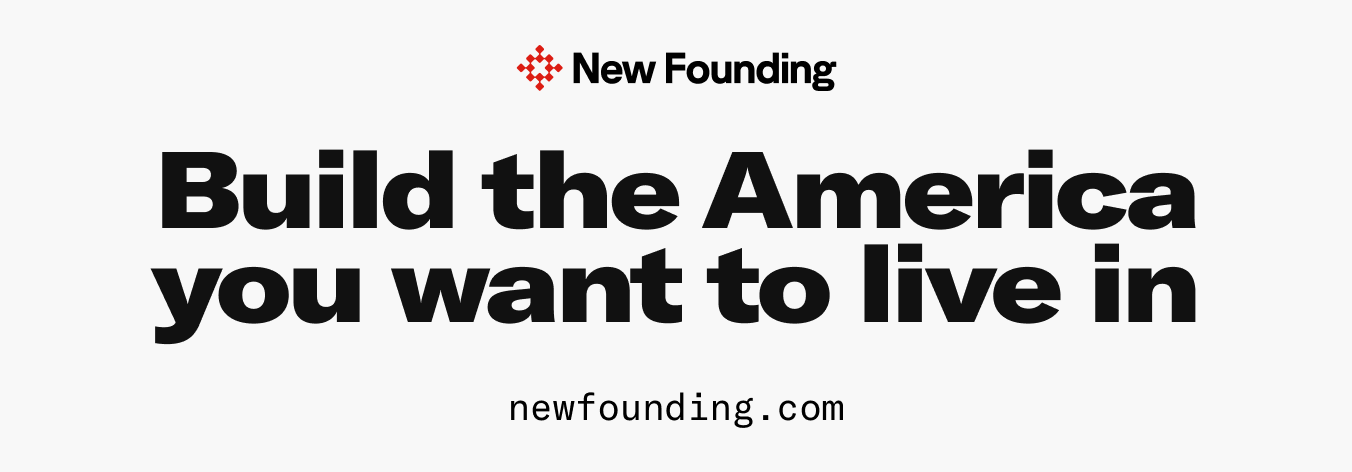Welcome to my weekly digest for March 17, 2023.
For new subscribers, this contains a roundup of my recent writings and podcasts, as well as links to the best articles from around the web this week. You can control what emails you get from me by visiting your account page.
For new paid Subscribers - thank you! - click over for instructions for accessing the Knowledge Base.
Annals of the Low Trust Society
The Free Press has an article on the rise of cheating in college and what it means.
For decades, campus standards have been plummeting. The hallowed, ivy-draped buildings, the stately quads, the timeless Latin mottos—all that tradition and honor have been slipping away. That’s an old story. Then Covid struck and all bets were off. With college kids doing college from their bedrooms and smartphones, and with the explosion of new technology, cheating became not just easy but practically unavoidable. “Cheating is rampant,” a Princeton senior told me. “Since Covid there’s been an increasing trend toward grade inflation, cheating, and ultimately, academic mediocrity.”
…
And at Dartmouth—once the reserve of the WASPiest of the WASPs, in beautiful, cloistered Hanover, New Hampshire—an anonymous source told me that students have developed the habit of breaking into groups of four when given online multiple-choice quizzes. Each guesses a different answer (A, B, C, or D) to each question. Because students get two chances to take the quiz—why that is, no one seems to know—they all have the right answer by the time they take the quiz for a second time. And wind up with a perfect score.
…
If student evaluations are treated like whiny but very important restaurant reviews, it’s partially because the food (a.k.a. tuition, room, and board) costs upward of $70,000 per year. The College Board recently reported that 55 percent of the class of 2020 graduated with student debt, and that the average debt was $28,400. It’s lamentable but not surprising that students and parents increasingly view the college administration as providing them with a very expensive piece of paper—a diploma—and professors, above all, as a hindrance when it comes to service delivery.
…
Most professors, students said, grasp that the American campus has changed—big time. That the paradigm has shifted. Professors want a comfortable perch that looks nice on their résumés where they can write their articles and books and get ahead—just like the students want to get ahead, just like the universities want to get ahead.
This is just another entry in the annals of our increasingly low trust society. Once cheating becomes rampant, it becomes difficult not to engage in it. There’s a principle in economics known as Gresham’s Law, which holds that “bad money drives out good.” This is why you almost never see the pre-1965 coins in the US that had actual silver in them circulating. Similarly, bad practices drive out good. When a critical mass of people start cheating, people who refuse to cheat or game the system get put at a huge disadvantage. This puts enormous pressure on those who would rather not cheat to do it just to avoid getting played for a chump.
We have a society that increasingly rewards people for doing socially destructing things and punishes them for doing what should be the right thing. Note especially the ultra-prestigious schools mentioned in this article. The long term consequences can’t be good.
Best of the Web
Institute for Family Studies: Pre-Marital Sex and Marital Stability - Pre-marital sex makes you more likely to get divorced.
Archives of Sexual Behavior: Frequency, Method, Intensity, and Health Sequelae of Sexual Choking Among U.S. Undergraduate and Graduate Students - Sociologist Brad Wilcox reacts:



NY Post: Gen Z, Millennials think women’s rights have gone too far, according to new survey
GQ: Why Are So Many Guys Obsessed With Master and Commander?
NYT: Fathers Gained Family Time in the Pandemic. Many Don’t Want to Give It Back
Virginia Postrel: Japan's Old Age Crisis and Ours to Come
London Review of Books: The Reaction Economy
Rob Henderson: Dropping the SAT Requirement Is a Luxury Belief
David Zweig: When a Renegade Church and a Zealous County Health Department Collide - Santa Clara County, California, imposed some of the harshest Covid restrictions in America. A church and its members defied them — and became the targets of an unprecedented surveillance operation
A Word From Our Sponsor
New Founding is organizing and connecting the people that will rebuild American civilization. Two key aspects of this project are moving people into aligned work and fueling the rise of new companies.
New Founding Talent has drawn thousands of high-caliber professionals seeking to exit woke organizations and businesses to work with like-minded colleagues. The network includes executives who have grown companies to 500MM+ in revenue all the way to early career engineers and co-founders keen to join a dynamic founding team. If you're interested in finding aligned work or hiring good, mission-aligned people, check out New Founding Talent.
New Founding Deal Room is assembling the founders and investors who see a historic opportunity to build and reclaim the American economy for the American people. If you're a founder and need aligned capital or an investor looking for mission-driven opportunities, the Deal Room is for you.
New Content and Media Mentions
I was mentioned this past week by Fred Clark at Patheos, in the Federalist, by Tom Owens, and Front Page Mag.
New this week:
This month’s newsletter #74 was on why great literature is right wing.
Reconciling People to Perpetual Singleness (paid only) - Another example of how the evangelical church is embracing post-familialism.
Last week Dr. Benjamin Mabry had a critique of The Scandal of the Evangelical Mind. This week I shared my thoughts on the book.
You can subscribe to my podcast on Apple, Google, or YouTube.
Paid subscribers get exclusive content, podcast transcripts, occasional webinars, and access to my Subscriber Knowledge Base. It’s also a great way to support my work, so please subscribe today.







Good points on cheating. It is probably getting worse. Though that Dartmouth example strikes me as a bad one, if we want to blame a culture of cheating amongst the students. Not to excuse the students too much, but I do think most of the practical blame rests with the professor.
I'm not proud to admit that I felt compelled to cheat in high school in the late 1990s. In a subject that I loved, no less -- US History -- and it reminds me of that Dartmouth situation. The teacher (a coach) was checked out and didn't realize or didn't care that the quizzes he was giving us (from a different textbook) ended up being practically impossible even for those who knew the subject well, but trivially easy to cheat on (we graded ourselves), on which most of our grade depended.
At that point, what were our options?
1. Stay honest and get a C or worse that might cost you a slot at the college you're trying to get into
2. Squeal and get the associated social censure
3. Cheat along with everyone else
Now, my mother, a Boomer, and normally a rule-follower with great respect for authority, always liked to tell the story of cheating through a Latin class in which the teacher would take a nap during every test and quiz, which she found funny. So I have to question if kids in the 1950s or 60s would have behaved any better than we did in the late 1990s if presented with the exact same incentive structure. I think a teacher, by not giving a fig, helps to promote the same attitude among students.
But it does say something about the degeneration of *college* if professors are increasingly setting things up this way. One of my favorite aspects of college was that every professor was seemingly both passionate and knowledgeable about the subject, as opposed to high school where it was mostly only the literature teachers.
The whole definition of 'cheating' is under intense scrutiny in higher ed as institutions scramble frantically to try to decide what they're going to do (or pretend to do) about their students' use of AI such as ChatGPT. I've seen reactions ranging from threat of expulsion for using AI in any way, to requiring students to base their assignment answers explicitly on AI input. So who knows how this is all going to be sorted out? Will we return to a university system in which the only 'good degree' is one earned through vivas and maybe extremely tightly-controlled written exams? Can't see that happening at American mega-unis, or even at HYPSMC and the like, where, as the article suggests, students are far too entitled to hand back that kind of power to their teachers.